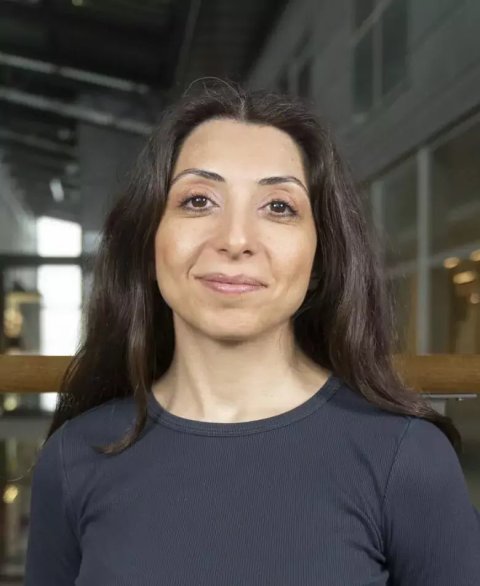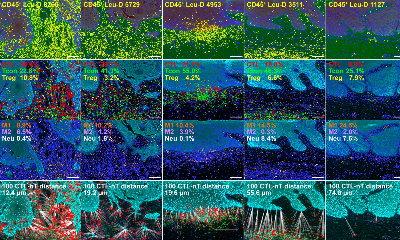Image source: Adobe Stock/Giovanni Cancemi
News • Immunotherapy effectiveness
Sex differences in pancreatic cancer: researchers reveal possible explanation
Immunotherapy is an effective form of therapy for different types of cancer. However, for pancreatic cancer, its effect is limited and differs between men and women. Researchers at Karolinska Institutet have now found a possible explanation for this sex difference.
The study, which is published in Cancer Research, reveals the presence of an immune cell in women with pancreatic cancer that obstructs the body’s immune response. The results can pave the way for a more sex-specific treatment.

Image source: Karolinska Institutet; photo: Yifei Chen
“More and more evidence is coming in that male and female hormones affect our immune system, but much remains to be done before sex can be included as a self-evident biological factor in medical research and therapy,” says the paper’s first author Fei He, former visiting researcher at the Department of Laboratory Medicine, Karolinska Institutet. “Our results provide new perspectives that can have high impact on the treatment of cancer.”
In recent years, immunotherapy, which stimulates the immune system to attack cancer cells, has contributed significantly to the treatment of different kinds of cancer, such as melanoma and lung, kidney and liver cancer. However, it is much less effective against pancreatic cancer, which remains one of the deadliest kinds of cancer that leaves patients, on average, with four to six months left to live after diagnosis.
Previous studies have shown that there are sex-bound biological differences in the male and female immune system that, amongst other effects, determine how tumours grow and the body’s ability to defend itself against them. A collaborative study involving researchers at Karolinska Institutet in Sweden has now addressed what might cause such sex-related disparities in the immune response to pancreatic cancer.

Image source: Karolinska Institutet; photo: Stefan Zimmerman
The study demonstrated a crucial difference in tumour properties in men and women with pancreatic cancer. There is a type of immune cell present in women that protects the tumour and prevents the immune system’s T cells from infiltrating the tumour and attacking the cancer cells.
“This sub-group of immune cells correlates with poor survival exclusively in female cancer patients,” says the study’s corresponding author and principal investigator Dhifaf Sarhan, assistant professor at the Department of Laboratory Medicine, Karolinska Institutet. “Our results show that the immune cells express a specific protein called FPR2 and can serve both as a sex-specific prognostic factor and a therapeutic target.”
The results can be useful to the development of diagnostic tools and immunotherapy for pancreatic cancer that take into account biological differences between men and women. The study was based on a combination of methods including single-cell RNA sequencing, proteomics, test tube and patient validation, and treatments of 3D pancreatic cancer models and mice. “The next step is to follow up our new immunotherapy target for women,” says Dr. Sarhan. “We’re also performing extensive analyses to understand how immunological sex differences drive tumour development in different ways in male and female cancer patients with the goal to find and develop immunotherapy targets for each group.”
The study is the result of a close collaboration between Dr. Sarhan’s research group and researchers at Karolinska Institutet, Karolinska University Hospital, Pronoxis AB and Uppsala University in Sweden and universities in Canada, Singapore and China. The study was financed by several bodies, principally the Swedish Cancer Society, Karolinska Institutet (KI Funds), the Centre for Innovative Medicine (CIMED) and the Cancer Research Funds of Radiumhemmet (see paper for full list). Peter Olofsson‐Sahl works at Pronoxis, which develops antagonists for FPR1 and FPR2. The other researchers report no conflicts of interest.
Source: Karolinska Institutet
17.03.2023











